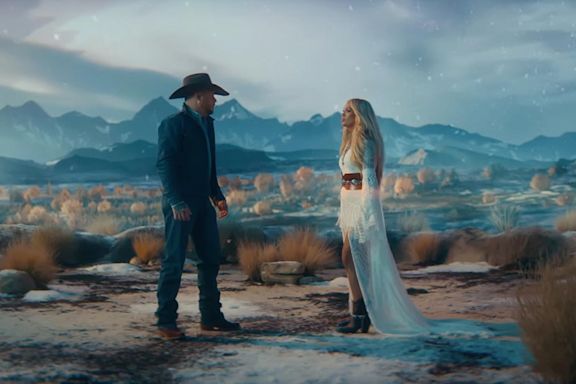Search results
Nov 17, 2023 · Music is one of the most universal and ancient forms of art, but its origin is difficult to pinpoint. Learn how music evolved from simple sounds to complex structures, and how it reflects human culture, emotion, and creativity.
People also ask
Where did ancient music come from?
What is the story of music?
Why is music important in history?
How did music originate?
Jan 29, 2021 · Did humans evolve to sing and dance, or did we invent our musical pastimes? Scientists are still debating the origin of this universal behavior.
2 days ago · Learn how music started with our ancient ancestors and how it evolved over time. Discover the first musical instruments, the power of voice, the role of music in rituals and healing, and the connection of music with community.
- James Donaldson
Searches related to how did music start
how did music start in the world how did music begin history of music - Key Takeaways
- The Origin of Music
- The Origin of Musical Notation
- European and Asian Ancient Music
- The Middle Ages
- From The Renaissance to Classical Music
- Opera and Romantic Music
- Jazz and Blues
- Rock and Pop Music
- Electronic Music
Origin of music.The human voice is the first instrument and form of music as prehistoric men and women imitated the sounds of nature. The first physical instrument dates back to more than 35,000 ye...Origin of Musical Notation.The earliest form of musical notation dates back to Babylonia (1400 BCE). The Ancient Greeks had their own system from at least the 6th century BCE. Fast forward to Guido...European and Asian Ancient Music.The first-ever written piece of music dates back to 3400 years ago which was a cuneiform “alphabet”. By studying ancient cultures, researchers found drawings of mus...The Middle Ages.During this time came music in the form of chants, or the famous Gregorian Chant by Pope Gregory the Great around 540-604 AD. Instruments used during this period were flutes, harps,...By looking at the behavior of some existing tribal populations, we can conclude that even in the simplest forms of society music plays a prominent role. This was probably true for our ancestors too. Prehistoric men and women probably started making music as a way to imitate the sounds of nature, either for religious or recreational reasons. The fir...
The origin of musical notation dates back to around 1400 BCE as the earliest form ever recorded was in a cuneiform tablet from Babylonia. Even then, the music was written in a diatonic scale and underwent some sort of development in the upcoming 150 years. The Ancient Greeks also had a form of musical notation that dates back to at least the 6th ce...
With the development of a writing system, it became possible to compose music as we do today. The first-ever written piece of music, presented in a cuneiform “alphabet”, was found in Syria and it probably dates back to 3400 years ago. Researchers were able to find out more about ancient music by studying the drawings on walls, vases, and other obje...
There is a rich corpus of research about medieval and Renaissance music. The interest in this topic is still so vivid that lots of contemporary ensembles and choirs devote their existence to a repertoire of this kind. During the Middle Ages, approximately 540-604 AD, the Gregorian Chantcame into play, invented by Pope Gregory the Great. Medieval mu...
During the Renaissance period, composers laid the foundation for what Baroque music would later become. The development of counterpoint and the use of chromatism, in particular, would later inspire Baroque artists such as Bach and Vivaldi. During the Baroque period, in particular, composers started creating music for richer ensembles, that would la...
From the XVIII to the early XX century, many different composers, from Mozart to Beethoven, from Haydn to Schubert, experimented with different forms, melodic ideas, innovative harmonic solutions, and instruments. This Classical era involved the development of a brand new singing form that mixed music and theater, still known today as Opera. Sympho...
Outside Europe, in the Afro-American communities, a brand new approach to music, inspired partly by the African traditions and partly by the Christian religion, took over and shook the norms. Jazz and blues set an important foundation for all the other contemporary genres, just as European classical music had done before. Based on improvisation and...
Throughout the Fifties, a revolution happened: rock’n’roll appeared and blasted the music scene. Originating directly from the blues form, rock’n’roll became a great trend and influenced many different aspects of culture and society. It also became a strong foundation for countless other genres and sub-genres, extending to the realm of pop music. G...
The development of new technologies and computers allowed artists to approach music in a whole different manner. They no longer had to play an instrument to compose a tune, they could just use a piece of software or an electronic device to deliver. In today’s mainstream music, electronic tools and resources are very present, although the song struc...
Jun 20, 2017 · Learn how music may have arisen from vocalization and rhythm, and how it evolved with human society and culture. Explore the evidence of ancient instruments, the functions of music, and the role of bonding in music history.
Music written for and by the early Christian Church properly inaugurates the Western classical music tradition, [1] which continues into medieval music where polyphony, staff notation and nascent forms of many modern instruments developed. In addition to religion or the lack thereof, a society's music is influenced by all other aspects of its ...
Discover the origins of human musicality and how it evolved over time in this fascinating article from BBC Science Focus Magazine.








